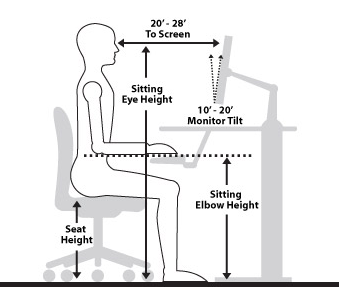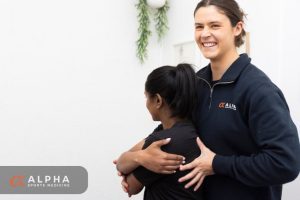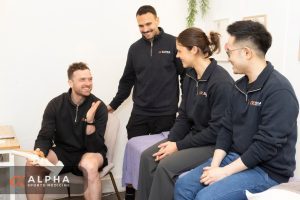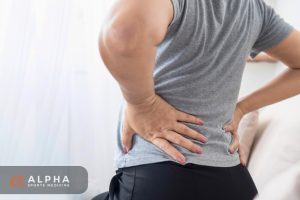Holidays are over for uni students across Australia (sort of). The new semester has begun, and so has the time to pick up the books again. Between lectures, tutorials, practicals, working on your laptop on the train, reading books in bed and writing assignments at midnight to make the 9am deadline, posture is the LAST thing you’re thinking about.
The other night I was at my family home, watching my lovely sister, law student, reading through her text books on the couch, in what could only be described as a position of some sort of contortionist pictured below

When I picked up on her bad posture she changed, into what was probably the biggest postural mistake university students make, bending the neck forward also pictured below

Both of these study positions are great examples of how NOT TO STUDY. These postures will only create increased muscular and ligamentous tension across the posterior of the spine, causing what I like to call “study neck”
- Tight shoulder muscles
- Stiff neck
- Headaches
This is caused by maintaining a flexed cervical spine for a long period of time, causing chronic straining of the posterior muscles, leading to a restricted cervical spine, tight and sore muscles shoulder and neck muscles which can cause cervicogenic headaches.
Study at an ergonomically set up desk

And If you can’t, study for maximum 20 minutes at a time before taking a 20-second break to stretch the muscles around your neck.
Your neck health is important. If you need help or assistance with ideas for desk ergonomics or stretches to help maintain your neck health, contact us at ALPHA Sports Medicine & Osteopathy, we care about students, and we’re here to help!
Author
-

Dr. Ashton Wilson began her studies with a three year Bachelor of Biomedical Science, where she majored in Anatomy and Physiology. She then switched to a more hands on approach, where she completed a three year Bachelor of Clinical Science and a two year Masters of Osteopathy. Ashton has since completed further education and is a qualified Strength and Conditioning Coach as well as a Kinetic Link Trainer.
View all posts






